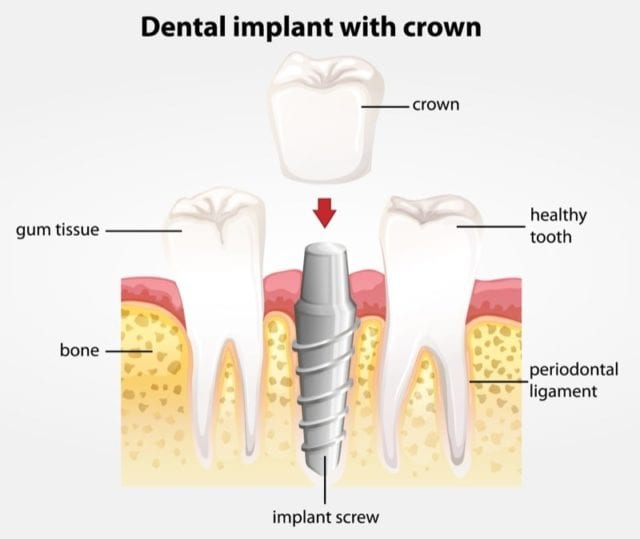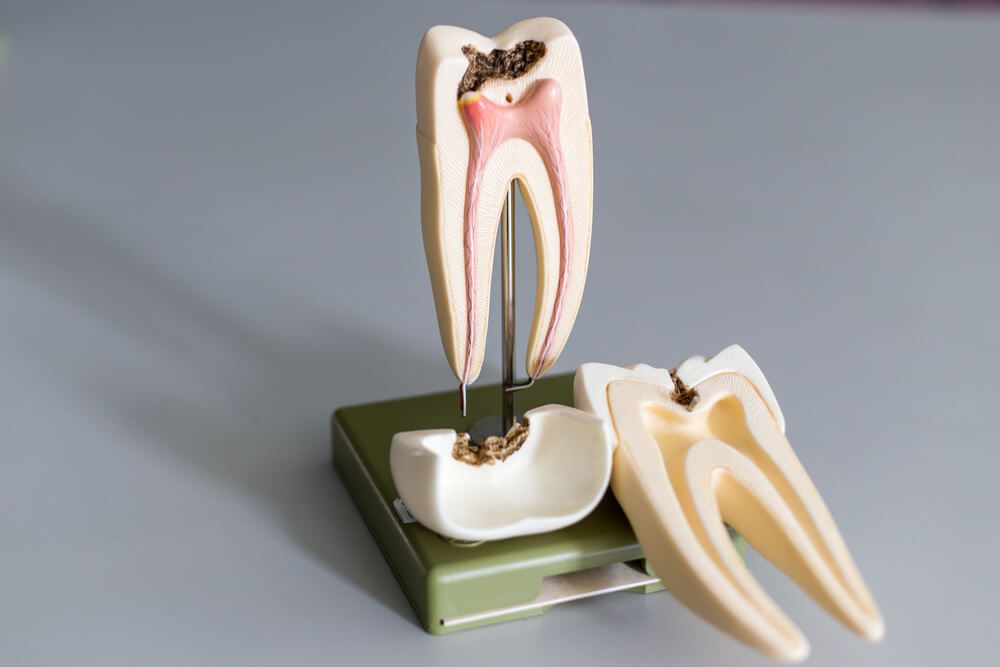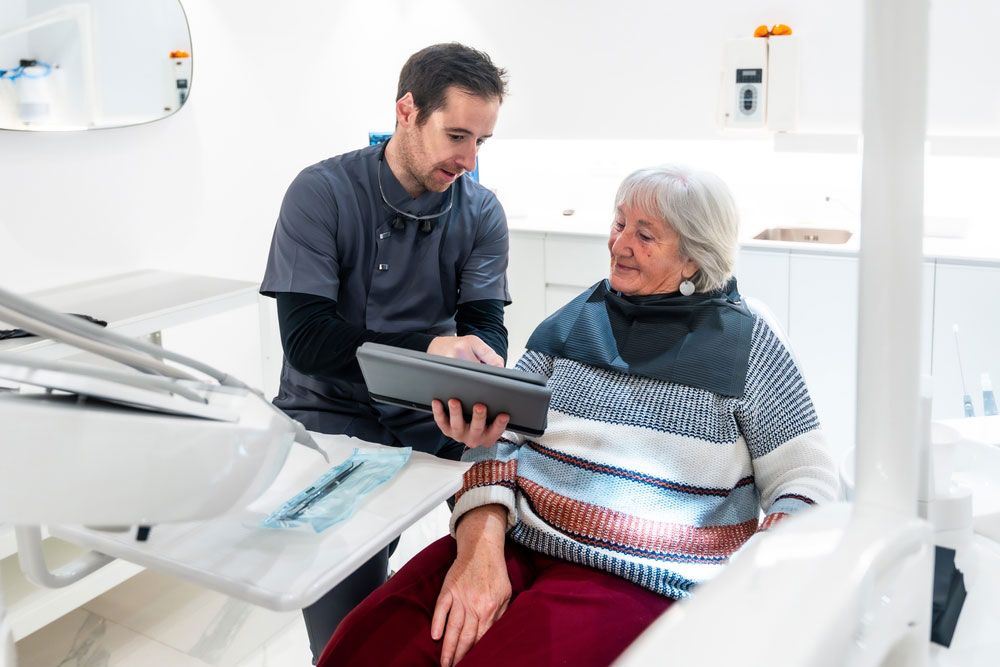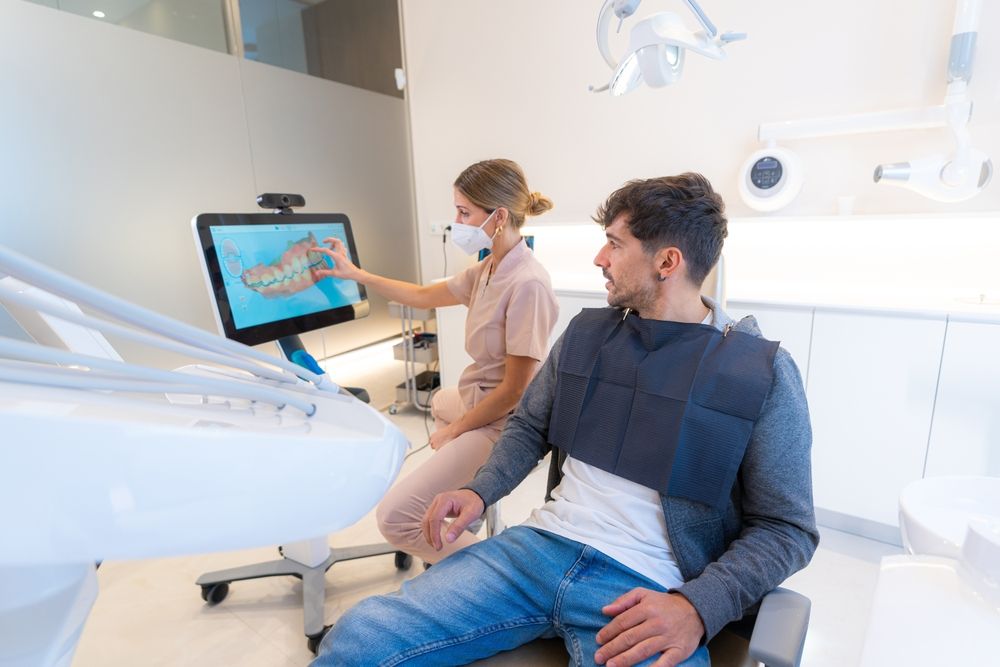Nowadays, there are a variety of tooth replacement options available. One of the most common options for tooth replacement are dental implants. While these tooth replacement options can offer an aesthetic and functional alternative to severely damaged or decayed teeth, they should be used as a last resort. Instead root canal therapy should be used as a way of restoring the tooth.
This is because no matter how close dental implants come to natural teeth, ultimately they are still not the same. The fact of the matter is that natural teeth are always better than any replacement option, including dental implants. The reason for this is that dental implants lack one important structure of natural teeth. Although the implant screw acts as an artificial tooth root and the prosthetic replaces the visible portion of the tooth, there is no way for a dental implant to replace the periodontal ligament.
The periodontal ligament is responsible for keeping the tooth root attached to the bone within the socket. It has several important functions including:
- Acts as a shock absorber for the tooth, meaning that it allows you to feel how hard you are biting down on something
- Has a sensory function that allows you to know when something is wrong with your tooth, such as infection
- Supports the bone and prevent bone loss
- Allows the tooth to move through the bone in response to orthodontic treatment
- Acts as a barrier to protect the bone from bacteria
When a natural tooth is removed, the periodontal ligament is also removed. After the periodontal ligament is gone, there is no way to tell how hard you are biting down with that tooth. Unfortunately, this can result in dental implant complications such as loosening implant screws, as well as the chipping or cracking of porcelain restorations. Bone loss also occurs, which will eventually change the look of the implant.

Since the periodontal ligament is such an integral part of the natural tooth structure, every attempt should be made to restore the natural tooth. The best way to accomplish this is through using root canal treatment to remove bacteria from the inside of the tooth. Not only does root canal therapy salvage the tooth, but it preserves the periodontal ligament as well.
Not only that, but root canals are far less invasive than the placement of dental implants and don’t have a lengthy recovery process. As specialists in dental pain, endodontists are able to use dental anesthetics to perform painless root canals. In as little as 1-2 dental appointments, endodontists can completely restore a severely decayed tooth by performing a root canal and placing a dental crown. Once the infection has been removed from the inside of the tooth, patients generally experience a reduction in pain within a few days.
Dental implants, on the other hand, require multiple appointments and an extensive recovery process. Since implants must fuse with the surrounding bone, it takes an average of 3-6 months for them to heal. While dental implants heal, there is a need for temporary dietary restrictions to prevent implant failure.
Overall, it is beneficial to restore a severely decayed tooth with root canal therapy instead of dental implants. The primary reason for this is because preserving a natural tooth also preserves the periodontal ligament, which is responsible for several key functions. Keeping the periodontal ligament intact is something that cannot be done by placing a dental implant. Therefore, root canal therapy is the best treatment option to maintain both the natural structure and function of the tooth.







